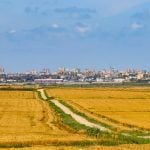I sometimes think I’ve been around too long. Around the field of agricultural journalism, that is. I’ve been a “farm writer,” as we ag journalists are fondly called, since the late ’60s.
I came on stream when the old Family Herald and the Free Press Report on Farming were still going strong and when the CBC still had an agricultural bureau in Ottawa. At that time, most prairie radio stations and daily papers too had agricultural reporters.
It wasn’t just in the prairies where the farm writers were strong, but across eastern Canada and in B.C., too. And those who were in the field for the most part knew their subject well.
Read Also

Kochia has become a significant problem for Prairie farmers
As you travel through southern Saskatchewan and Alberta, particularly in areas challenged by dry growing conditions, the magnitude of the kochia problem is easy to see.
After attending a farm writers’ event in Toronto, Joe Scanlon, then the head of the journalism school at Carleton University, told me that he thought farm writers were the most professional journalists he had ever dealt with, both from the point of view of knowing their subject and of telling a factual story.
Over the years we have lost the Family Herald and the Report on Farming, CBC no longer has an agricultural bureau in Ottawa and most of the dailies, radio and television have dropped their agricultural specialists.
As the rural population has declined, so has the coverage of agricultural issues, even in Saskatchewan. This has led to urban readers often being sadly uninformed or misinformed about agriculture and agricultural matters.
A case in point: Saskatchewan’s municipal government minister Carol Teichrob recently stated that when the province cuts transfer payments to municipalities next year, the cuts may not be equal since, in some smaller municipalities, revenue sharing forms a larger part of the budget than it does in, say, Saskatoon or Regina.
The daily Saskatoon StarPhoenix took exception to this, saying in an editorial: “Why shift the burden to urban taxpayers at a time when rural incomes are likely to hit their highest level in years while many urban workers haven’t had pay raises in years or have been victims of mass layoffs?” In the same paper, in the business section, the lead story was, titled “Big yield won’t net huge profit.”
While I don’t believe that farm writers need be apologists for agriculture, I do think it is time to go back to when the media in this province had agricultural specialists.
Good reporting and fair commentary on agricultural matters can go a long way toward bridging the rural-urban gap.
















